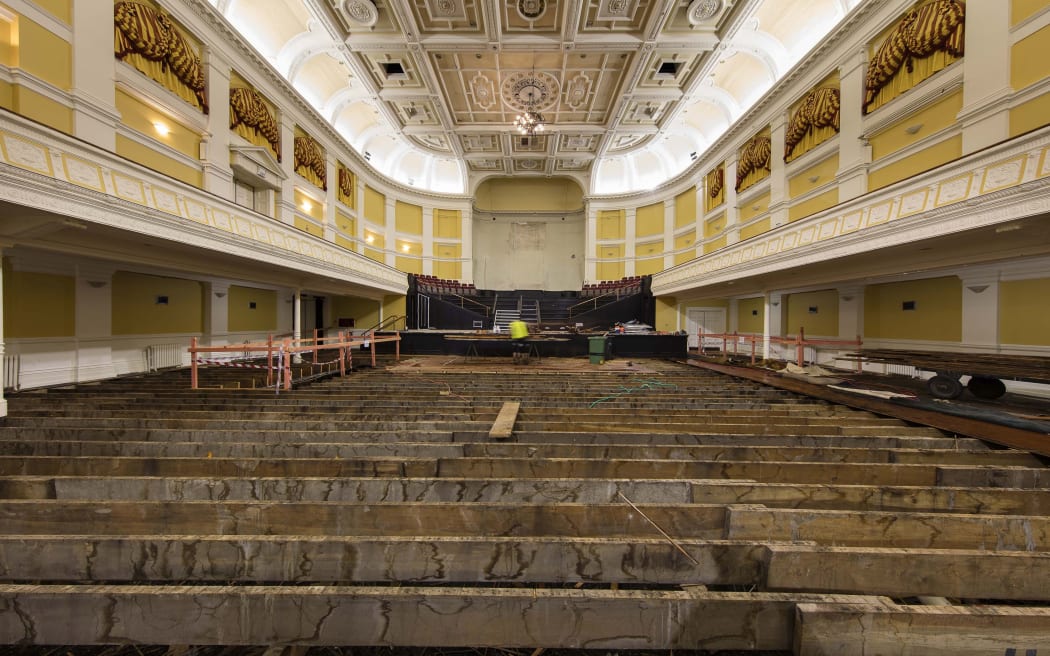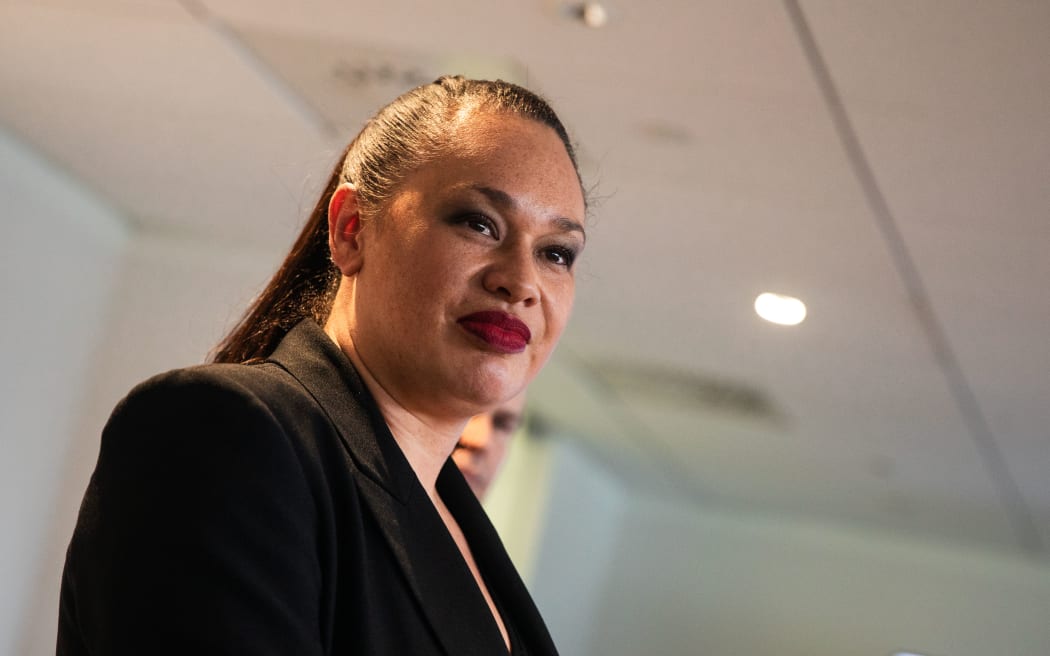What's the matter with Wellington? Cracking infrastructure, costly repair bills and a dollar that's far too stretched to cover it all – and it's not the only council slicing services and plans to meet budget bottom lines that are acceptable to ratepayers.

Wellington councillors have agreed to pour more money into repairing the Town Hall to meet the potential final refurbishment cost of around $330 million. Photo: Wellington City Council
The cracks are showing in our cool little capital.
Earthquakes themselves are not strictly to blame, but strict new earthquake rules relating to the strengthening of buildings are straining Wellington's budget.
On top of that, the job of fixing aging infrastructure is a massive one, which city councillors discovered when they tried to make the books balance at their marathon long term plan meeting last week.
Wellington is not alone. All 78 councils around the country are facing financial stress, and they can't keep borrowing to pay for desperately needed upgrades.
Today on The Detail we talk to The Spinoff's Wellington editor Joel MacManus about what's happening in Wellington – changes like demolishing the unique city-to-sea bridge and pulling back on cycleways.
"This budget forced so many spending cuts," MacManus says.
"When you look at the reasons why ... when you look around Wellington, the town hall is going to cost $330 million, the library is going to be enormously expensive, so many of the pipes are breaking and all of this stuff comes back to earthquake issues.
"The 2016 Kaikoura earthquake caused so many microfractures across Wellington. It's just kind of spread, and over the years – particularly with new earthquake standards coming in – everything suddenly needed to be repaired, everything was broken and costs have just kept ticking up.
"We know that local government's under a lot of strain across New Zealand – Wayne Brown in Auckland made that really clear about the council books.
"We know that central government's looking at local government reform already. Local governments are going to need new funding tools, they're going to need to be reshaped, possibly amalgamated. There are a lot of things that you could say that aren't working about councils right now."
Wellington mayor Tory Whanau has talked about keeping rates low and keeping the council within its debt limit.

Wellington mayor Tory Whanau. Photo: RNZ / Samuel Rillstone
Most homeowners glare at their rates bills when they arrive, but they don't always think about the other side – debt.
Former Local Government New Zealand president Stuart Crosby talks to The Detail about how councils manage it.
"[Debt] was a dirty word in local government. You'd go to ratepayers meetings and you'd get beaten up if you had $5 million worth of debt, let alone $50 million or $200 million," he says.
"But it has changed a little bit over time, as people have understood that it's just a financial instrument that should be used where appropriate, particularly in helping fund infrastructure that will last over many, many years."
Crosby talks about the rules around what councils can use debt to finance, how they access it, and what the limits are.
Then he looks ahead to what local government wants from the Beehive this term, given their dire financial straits and the suite of changes that had been proposed under Labour.
"The main thing is that we develop a good partnership with central government, because central government cannot achieve their dreams and ambitions without local government, who often deliver them. We've just got to think a little bit more differently in 2023 than we have over the last 120 years, because that simply hasn't worked."
Check out how to listen to and follow The Detail here.
You can also stay up-to-date by liking us on Facebook or following us on Twitter.

Photo:


